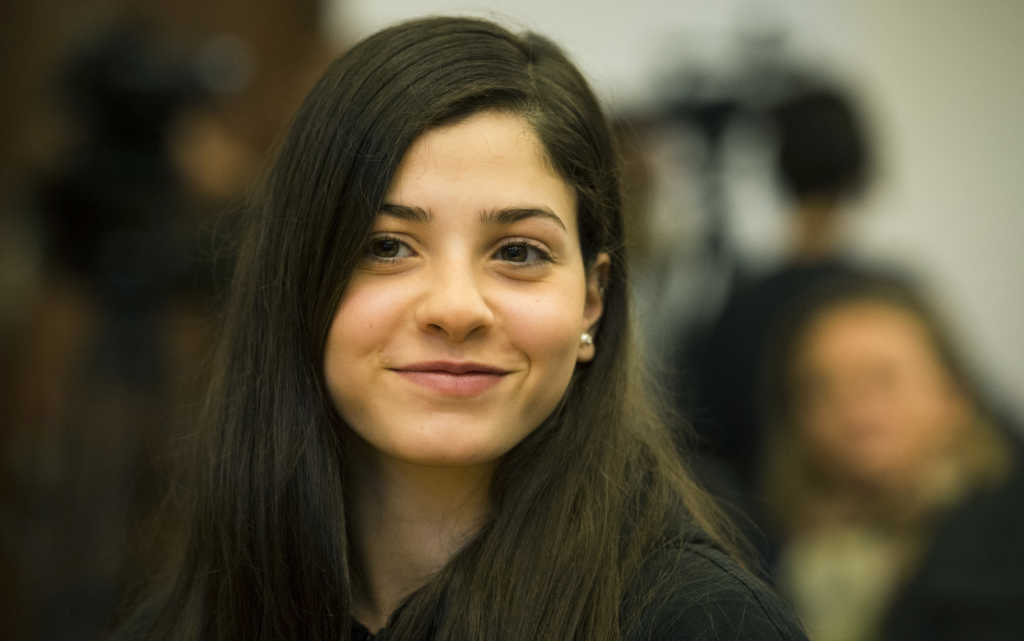Every four years the world watches athletes at the top of their game compete at the Olympics in various sporting events like track & field, gymnastics and swimming.
REPORT: Suicide and Acts of ‘Self-Harm’ Are on the Rise Amongst Syrian CHILDREN
This past year’s summer games had a host of superstars and inspiring stories, but none were quite like Yusra Mardini’s. She’s the former Syrian refugee whose remarkable story culminated with her competing for the first time at the 2016 Rio games.
She captured the world’s attention, but didn’t end up bringing home any medals. She’s hoping that all changes in 2020 as she has her eyes set on the next games – but in the meantime, we can look forward to a feature length film documenting her incredible grit and determination.
Her rise to success started years ago, when she was forced to figure out a way to flee from Syria.
15 months before Mardini swam in front of millions this past summer, the 19-year-old wasn’t actually sure she would make it out of the bombed out country alive.
Like most Syrian natives, Mardini and her sister were forced out of the Middle Eastern country due to the ongoing fighting between the fractured opposition group and the national government. And like most, she didn’t quite know where to go. But she trusted that her sister would be able to figure something out. The first stop for the two girls traveling alone was Turkey, a nation that borders Syria and accepted refugees.
Unable to fly, the two girls needed to take a boat to get there, so they took one with roughly 18 others. But 20 minutes into their 45 minute motor boat trip, the motor died and the boat began to sink. Instead of panicking, Mardini instantly went into survival mode and used her hand as an oar and began paddling with others to shore.
The grand irony of it all? Mardini didn’t even want to be a swimmer. As a kid she wanted to be a pilot, but her father, Ezzat Mardini, was a swim coach and every Saturday he took Mardini and her 21-year-old sister to the pool to practice.
It was good he did that, because for the first year of the crisis the water became her safe place. Mardini explained that in 2011, when she was in seventh grade, she didn’t even think about the protests in the street because she just “kept swimming and going to school” basically “trying to live like a normal kid.” Then as the violence started to increase, her family’s level of fear began to escalate as well as hers.
Especially when her suburban home of Daraya, a city right outside of Damascus, was destroyed by fighting. The people who survived the battle between the opposition and national Syrian soldiers were left to starve. To feed themselves, families like the Mardinis had to rely on soup made from leaves.
“After that, it was all different. Tanks, and electrical wires hanging down from their poles, everything ruined.” And it also became hard to go to the pool, with gunfire regularly erupting just outside.
Originally her parents just thought moving closer to Damascus would make everything better, but it didn’t.
The parents decided to stay in Syria, but the young girls left and embarked on their own to a new place. Now Mardini is in Europe and safe. But her journey to Berlin was slow. She and her sister got stuck along the way. After the boat incident, they were forced to walk for miles with no shoes because they’d already gotten rid of them while on the boat. After that, the girls got stuck in a central Budapest train station because the borders were closed to refugees. They didn’t let that stop them, however, and they managed to reach their financial destination of Germany.
When they arrived and went to a camp, the young women didn’t have anything and had to sleep on the floor. Mardini says none of that mattered because at least they were safe.
During her six month residency in the camp, she heard about a swimming club and decided to try out. She made the team, and it became a safe place where she could practice. Through her efforts and decision to get back into training, she made it to Rio and swam for the Refugee Olympic team. The young woman won the preliminary heat but didn’t make it past there.
"I am Yusra Mardini. I am a refugee+am proud to stand for peace, decency + dignity for all fleeing violence." #WEF17 https://t.co/5FBJB6ra8Y
— Yusra Mardini (@YusraMardini) January 11, 2017
Earlier this month it was announced that her story will go to the big screen.
https://twitter.com/olympicchannel/status/843419864731672576
(H/T: Vogue)
—
Other Must-Read Stories:
– Humanitarian Official Inside West Mosul: ‘We Haven’t Seen This Type of Warfare in Decades’
– Frugality: 86-Year-Old Man’s Lifetime Recycling Habit Helps Raise $400,000 for Charity
– 6 Aid Workers Killed as Humanitarian Crisis Reaches ‘Unprecedented Levels’ in South Sudan



